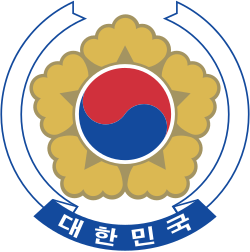| This article is part of a series on |
 |
|---|
The June 2022 South Korean by-elections for seven constituencies of the National Assembly were held in South Korea simultaneously with local elections on June 1, 2022.
Contents
- Reasons for by-elections
- List of constituencies and candidates
- Results
- Daegu Suseong
- Incheon Gyeyang
- Seongnam Bundang-gu
- Jeju
- Seocheon Boryeong
- Changwon Uichang-gu
- Gangwon Wonju
- References
Lee Jae-myung of the Democratic Party [1] and Ahn Cheol-soo of the People Power Party, [2] former candidates in the 2022 South Korean presidential election, ran successfully in the by-election for one of the constituencies.